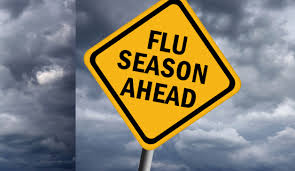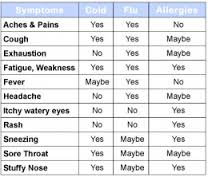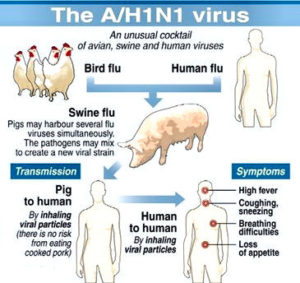




Here is why based on the Center for Disease and Infection Control (CDC) reasons not to avoid the flu shot:
If you’re over 6 months old, the CDC says yes, you need to get a flu vaccination at the start of every flu season. Despite the fact that we tend to label any illness that makes us sneeze, shiver, or vomit as “the flu,” true influenza isn’t a trivial illness. It can do far worse than just keep you home from work or school for a few days.
“Hundreds of thousands of people each year are hospitalized with influenza. Between 3,000 and 40,000 people die during any influenza season, depending on the strain that’s circulating,” says Jeffrey Duchin, MD. He’s chief of the Communicable Disease Epidemiology & Immunization Section at Seattle & King County Public Health, and an associate professor in medicine in the University of Washington Division of Infectious Diseases.
Although young infants, the elderly, pregnant women, and people with chronic conditions like asthma or heart disease are most susceptible to flu complications (including pneumonia), people of all ages die from the disease each year.
“It’s a serious health problem for adults and children. And it’s preventable,” says Duchin, who is also a member of the CDC’s Advisory Committee on Immunization Practices (ACIP). “We have a way for people to avoid unnecessary doctor’s visits, to avoid unnecessary antibiotics, and to avoid hospitalization.”
You might balk at having to visit your doctor or pharmacy every year for yet another dose of the influenza vaccine, but there’s a good reason for the repeat visits. The flu bug is a pretty wily creature.
“The virus is sort of tricky in the way it reproduces from year to year, in that it shifts its chemical coating from season to season,” explains Geoffrey A. Weinberg, MD, a pediatric infectious disease specialist and professor of pediatrics at the University of Rochester. “Even if you’ve been good about getting flu shots for several years you need to keep it up, because next year’s flu could be very different.”
The flu is far less predictable than measles and chickenpox, which only take a couple of childhood immunizations to provide full protection. “Those diseases are caused by only one strain of virus, and they don’t shift,” says Weinberg.
That annual flu vaccine ritual might soon be coming to an end, however. Researchers have been on the hunt for a universal flu vaccine for several years, and they may be getting close. Recently, they’ve discovered a more consistent target on the flu virus — one that could help them finally develop a flu vaccine that provides long-lasting protection.
Just for your FYI if your debating on whether or not to get the flu shot, I know I will especially being in the hospital as a RN almost 30 years and has worked for me.
Patients can refuse a flu shot. Should doctors and nurses have that right, too? That is the thorny question surfacing as U.S. hospitals increasingly crack down on employees, at least since 2013 and rising, about who won’t get flu shots, with some workers losing their jobs over their refusal.
Most doctors and nurses do get flu shots. But in the 2013, at least 15 nurses and other hospital staffers in four states have been fired for refusing, and several others have resigned, according to affected workers, hospital authorities and published reports.
In Rhode Island, one of three states with tough penalties behind a mandatory vaccine policy for health care workers. Being a RN almost 30 years I should with any other person in a hospital setting take on the responsibility for myself and patients I care for with the people around me to protect both them and myself from getting the flu.
Why would people whose job is to protect sick patients refuse a flu shot? The reasons vary: allergies to flu vaccine, which are rare; religious objections; and skepticism about whether vaccinating health workers will prevent flu in patients.
Isn’t our responsibility for our community to protect ourselves and others from getting the flu and passing it on to others whether in or out of a hospital job. It is called infection control; not taking the flu vaccine is not helping to control the flu virus in our society. Their are exceptions listed above. Religious objections is more a political correct reason which are rarely used but allergies or if anyway it can affect you health negatively I could see the vaccine being not given, especially if the negative effect of taking the vaccine outweighs the positive effects.
Dr. Carolyn Bridges, associate director for adult immunization at the federal Centers for Disease Control and Prevention, says the strongest evidence is from studies in nursing homes, linking flu vaccination among health care workers with fewer patient deaths from all causes. “We would all like to see stronger data,” she said. But other evidence shows flu vaccination “significantly decreases” flu cases, she said. “It should work the same in a health care worker versus somebody out in the community.”










